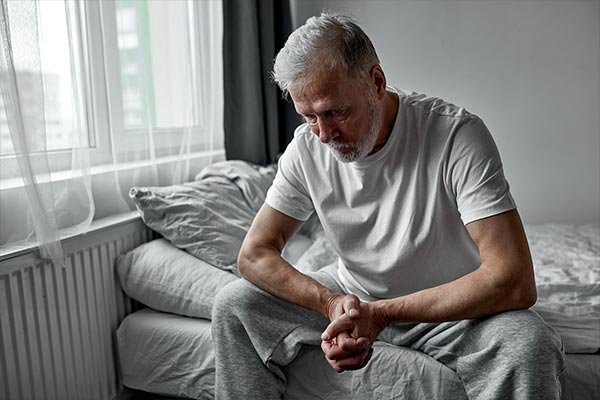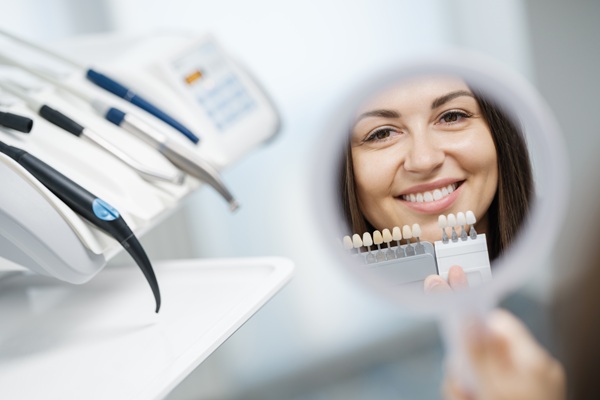 Sleep apnea is a sleep disorder in which a person frequently stops and starts breathing while asleep. Not only does the disorder cause fatigue due to sleep deprivation, but it can also have other potentially serious consequences. If someone has symptoms of this ailment, treatment should be sought.
Sleep apnea is a sleep disorder in which a person frequently stops and starts breathing while asleep. Not only does the disorder cause fatigue due to sleep deprivation, but it can also have other potentially serious consequences. If someone has symptoms of this ailment, treatment should be sought.
Symptoms of sleep apnea
There are three main types of sleep apnea. Obstructive is the most common, and it happens because the muscles in the throat relax. With central apnea, the brain does not signal to the breathing muscles properly. Complex syndrome is a combination of the other two types.
The symptoms for all types of sleep apnea are similar:
- Periodically ceasing breathing while asleep
- Snoring
- Gasping for air while sleeping
- Morning headaches
- Dry mouth in the morning
- Insomnia
- Frequent daytime sleepiness
People who experience these symptoms also potentially have additional complications. These include high blood pressure, type 2 diabetes, liver problems, metabolic syndrome, and complications with surgery and medications.
Treatment for sleep apnea
Along with symptoms and observations by someone living with the person with sleep issues, there are a couple of diagnostic tests that can detect sleep apnea. Nocturnal polysomnography consists of hooking up equipment to measure breathing patterns, brain activity, blood oxygen levels, and leg and arm movements while the patient sleeps. There is also a home sleep test to monitor the body.
If there are abnormal test results, different treatment methods may be recommended. For mild cases, simple lifestyle changes, such as quitting smoking or losing weight, may be sufficient.
Airway pressure devices
People with moderate to severe sleep apnea often benefit from wearing a mask hooked to a machine that provides air pressure while sleeping. The continuous positive airway pressure machine is the most common. It keeps the airway passages open, preventing a stop in breathing. If someone struggles using a CPAP machine, there is auto-CPAP, which adjusts the pressure automatically, and the bilevel positive airway pressure, which provides more pressure on inhale and less on exhale.
Oral appliances
Easier to use than a CPAP, there are numerous oral devices that can keep the throat open while sleeping. A dentist can help a person find the right one and make sure it fits properly.
Adaptive servo-ventilation
An ASV machine is another airflow device. A built-in computer tracks a person’s normal breathing pattern and then uses pressure to normalize the pattern while sleeping. This method tends to work better than CPAP for those with complex sleep apnea, although it is not a good choice for those with predominant central sleep apnea.
Surgery
If other treatment methods do not fix the problem, surgery may be an option. Some common procedures include tissue removal, tissue shrinkage, implants, jaw repositioning, and nerve stimulation. Tracheostomy is a more invasive procedure that is recommended for those with life-threatening sleep apnea.
Conclusion
If someone is always tired and suspects sleep apnea, seeking professional help is recommended. A variety of treatments are available to help a person breathe better and easier throughout the night.
Request an appointment or call Complete Dental at 559-448-9000 for an appointment in our Fresno office.
Related Posts
Individuals who struggle with symptoms of sleep apnea may not realize the help their dentist can provide by assessing or treating this sleep disorder. Dentists will often ask patients about their sleep habits to assess the possibility of an individual dealing with apnea, though there are other oral health signs that could lead to a…
Unexplained fatigue, loud snoring, dry mouth, and morning headaches are all classic signs of sleep apnea. These symptoms should be taken very seriously, especially among those who fit any of these characteristics:MaleOverweight or obeseOlder in ageLiving with a preexisting medical conditionKnown to have a family history of sleep apneaWhen left untreated, sleep apnea can lead…
If you wake up feeling sleepy, it might be tempting to write it off as just another night, but if it becomes a regular problem, then it may be time to consider sleep apnea as a possible cause of this excessive tiredness. This sleep disorder occurs when breathing starts and stops throughout the night. It…


